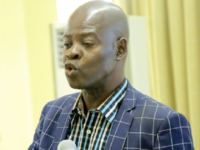
A former Deputy Minister of Education, Samuel Okudjeto Ablakwa has advised government to make use of the E-block schools constructed under the Mahama administration.
This, he noted will help the Education Ministry to resolve some of the infrastructure challenges it is facing in the implementation of the free senior high school education policy.
Speaking on News-file, a current affairs program on Joy News, Hon Ablakwa wondered why the ministry has allowed some of the E-shaped block of schools to lie fallow when it could have been used to reduce the classroom deficit in the country.
Some of the blocks in the Brong-Ahafo, Ashanti and Eastern Regions, the former Deputy Minister revealed is still uninhabited.
‘’I urge the government to make use of the E-Block schools constructed by the Mahama administration across the country so that issues of accommodation and spaces could be addressed to reduce the deficit we have in getting more numbers in classrooms for free SHS’’, Mr Ablakwa stressed.
CLARIFICATION:
Mr Ablakwa noted the NDC is not against the free SHS education policy but was worried at the mode of its implementation.
The NDC, he stressed holds the view that the program rather be introduced gradually while resolving the challenges of accommodation and classroom infrastructure.
The current manner the policy is being implemented, Mr Ablakwa opined is unsustainable since some the requirements to make it a success is missing.
The government, he appealed should hold on to the planned implementation of the double-track system since it is bound to create a mess in the academic calendar of SHS students.
‘’I am surprised with all these problems about the wholesale implementation of the free SHS policy the government still wants to go ahead with this double track system which to some of us is a re-introduction of the shift system in the educational settings’’, the North Tongu MP stated.
CONSULTATION:
Hon Ablakwa said the government should have engaged more with stakeholders in the education sector before the decision to roll out the double track system.
According to him, it is prudent that everybody finds his or her views on the policy before the final draft for implementation.
By this, he noted all will be on the same page with the implementation process leading up to its eventual roll out.
The double-track system, he therefore posited will create a bigger headache for the Ministry in its quest to continue with the free education policy.
What do you think about this piece? Share your comment in the comment thread and share the story using the social media buttons above. Thank you.





